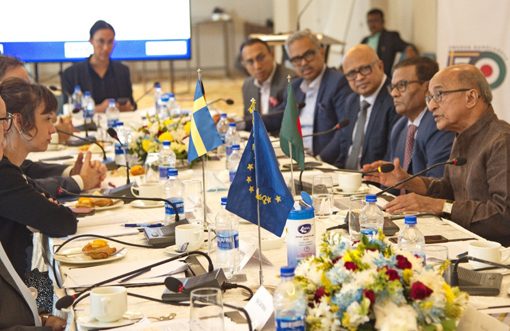Minimum wage for textile workers established at Tk 10,000

Government is on the verge of determining the minimum monthly wage for textile workers at Tk 10,000, following a recent raise in the minimum wage for garment workers to Tk 12,500, which took effect three months ago. This decision has ignited debates, with labor leaders criticizing the proposed wage as insufficient given current inflation rates and market prices, advocating for a wage that better reflects the cost of living.
In defense of the proposed wage, textile entrepreneurs highlight a 75% increase compared to the 56% hike in the garment sector, underscoring the relatively lighter workload in textile compared to garment work.
Raisa Afroz, secretary of the Minimum Wage Board, confirmed the finalization of the minimum wage for textile workers, stating that a gazette notification will soon be issued. She assured that the decision was reached with the consensus of both factory owners and workers’ representatives.
Bangladesh Textile Mills Association (BTMA) indicates that its 1,780 affiliated factories employ approximately 500,000 workers, potentially exceeding 800,000 when considering non-member factories. The proposed minimum wage of Tk 10,000 is defended by Monsoor Ahmed, acting secretary-general of BTMA, as a significant increase, surpassing the raise in the garment sector.
Despite initial demands for Tk 25,600, the worker representative on the wage board for the textile sector, Md Shahjahan Saju, settled for Tk 10,000, citing unanimous agreement during the meeting and acknowledging the higher rate of increase compared to the garment sector.
However, Taslima Akhter, president of the Bangladesh Garment Sramik Sanghati, deems the proposed wage “unacceptable,” emphasizing workers’ inability to sustain themselves amidst current inflation rates. Kutubuddin Ahmed, general secretary of IndustriALL Bangladesh Council, denounces the proposed wage hike, stating it fails to meet workers’ basic needs.
Despite requests for a minimum wage of Tk 23,000, the government settled on Tk 12,500 for garment workers, which led to tragic fatalities during the advocacy movement. Dissatisfaction over wage rates has also emerged in the textile industry, notably in factories in Gazipur and Savar.
The last minimum wage for textile workers, set in 2018 at Tk 5,710, is set to be updated after approximately a month. Wage grades will remain, with the minimum wage in the 10th grade varying based on location, ranging from Tk 10,000 to Tk 15,273. Unlike the garment sector, the textile industry lacks a robust trade union or federation.





Comment here